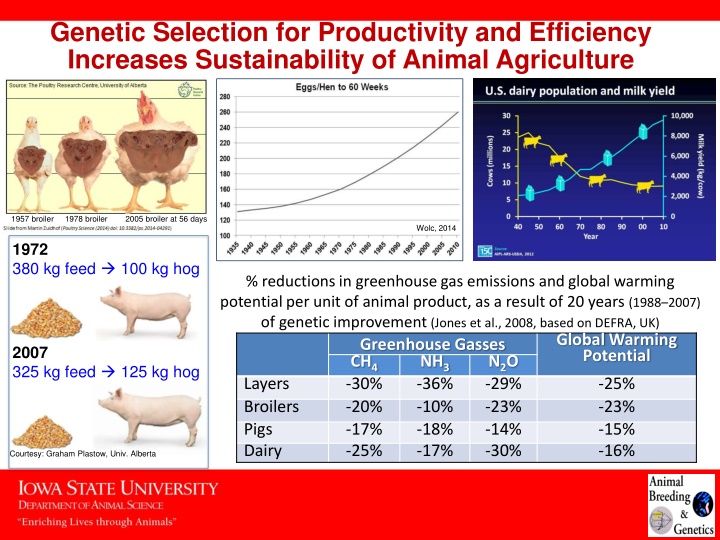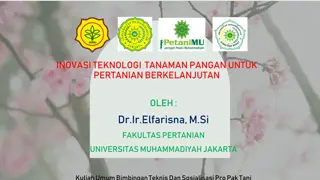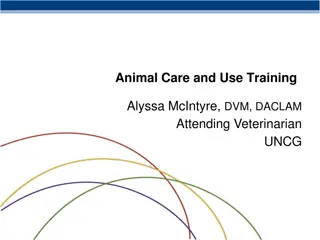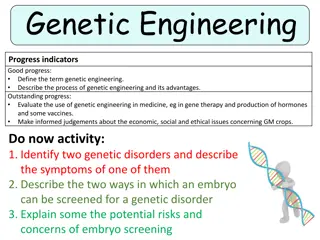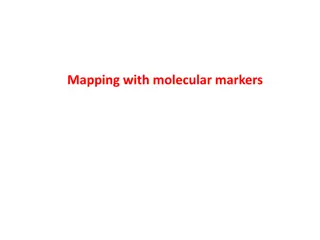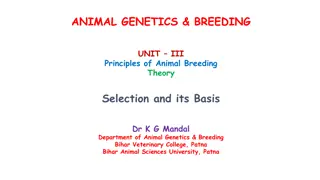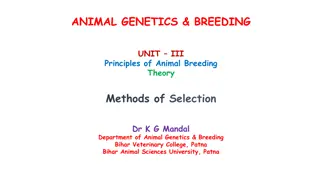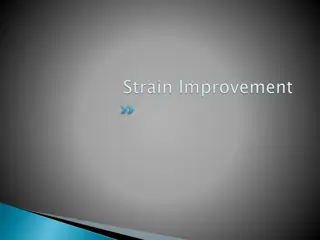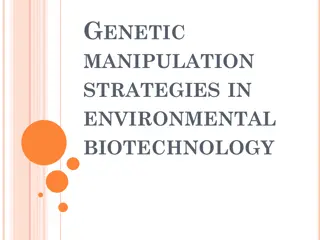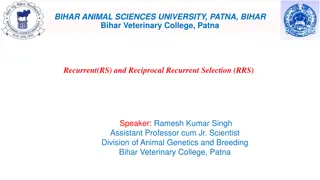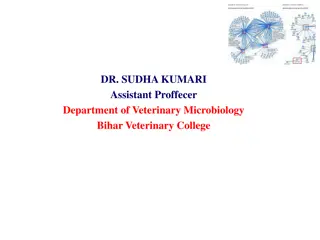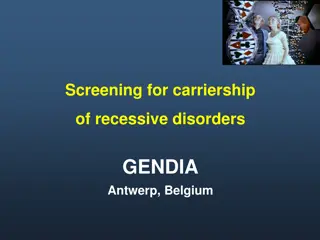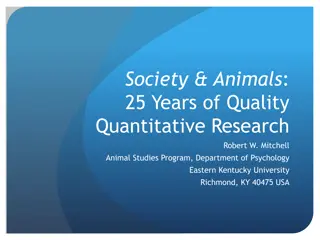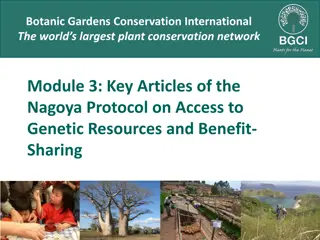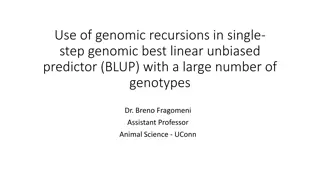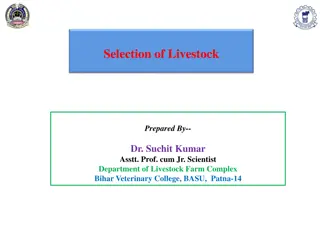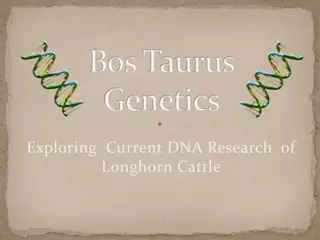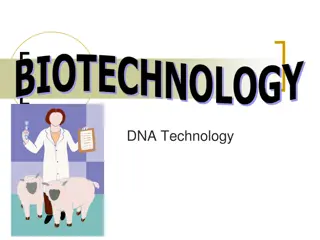Advancements in Genetic Selection for Sustainable Animal Agriculture
The evolution of genetic selection in animal agriculture has significantly enhanced productivity and efficiency, leading to reductions in greenhouse gas emissions and global warming potential. Various studies highlight the positive impact of genetic improvement on broilers, pigs, and dairy animals. Additionally, animal science initiatives, interdisciplinary projects, curriculum changes, and industry engagement efforts contribute to sustainability in the agricultural sector. Opportunities for further exploration include addressing climate change effects, quantifying greenhouse gas emissions from livestock production systems, and enhancing prediction accuracy through advanced models.
Download Presentation

Please find below an Image/Link to download the presentation.
The content on the website is provided AS IS for your information and personal use only. It may not be sold, licensed, or shared on other websites without obtaining consent from the author.If you encounter any issues during the download, it is possible that the publisher has removed the file from their server.
You are allowed to download the files provided on this website for personal or commercial use, subject to the condition that they are used lawfully. All files are the property of their respective owners.
The content on the website is provided AS IS for your information and personal use only. It may not be sold, licensed, or shared on other websites without obtaining consent from the author.
E N D
Presentation Transcript
Genetic Selection for Productivity and Efficiency Increases Sustainability of Animal Agriculture 1957 broiler 1978 broiler 2005 broiler at 56 days Wolc, 2014 1972 380 kg feed 100 kg hog % reductions in greenhouse gas emissions and global warming potential per unit of animal product, as a result of 20 years (1988 2007) of genetic improvement (Jones et al., 2008, based on DEFRA, UK) Greenhouse Gasses CH4 NH3 Layers -30% -36% Broilers -20% -10% Pigs -17% -18% Dairy -25% -17% Global Warming Potential 2007 325 kg feed 125 kg hog N2O -29% -23% -14% -30% -25% -23% -15% -16% Courtesy: Graham Plastow, Univ. Alberta
Animal Science Contributions to Sustainability USDA NIFA Interdisciplinary Feed Efficiency Projects Genetic Selection, Genomics, Annotation Programs Heat Stress Impacts on Nutrition, Metabolism, Health and Performance + Genetic Interactions Sow Longevity-Productive Lifetime Program International programs (CSRL, Ensminger Schools) Dairy Farm manure solids recycled for bedding An Sci farms provide 85% of ISU compost material
Curriculum Changes Needed CALS capstone course on sustainability? Add a required sustainability component to the business plans developed in the 400-level production courses. Add a nutrient management plan project if not required or included in production courses. Add a niche market segment in production courses.
Industry Engagement Iowa Beef Center Dr. Dan Loy, Director Iowa Pork Industry Center Dr. Jason Ross, Director RFI International Conference, Iowa Swine Day, Dietary Fat Symposium, Dietary Fiber Symposium Iowa Pork Producers Research Committee Workshop ICA, IPPA, ISDA, EIC, ITF, IEC Board memberships Short courses, regional conferences, off-campus visits, web sites, industry personnel training, advisory outreach
Unexplored Opportunities Climate change (heat stress) livestock impacts Climate change effects on crop yield/digestibility Livestock influences on climate change Methane and greenhouse gas emissions from livestock production systems need to be quantified for specific management variables Indirect calorimetry chambers are needed to determine contributions and develop mathematical and extant models for increased prediction accuracy
